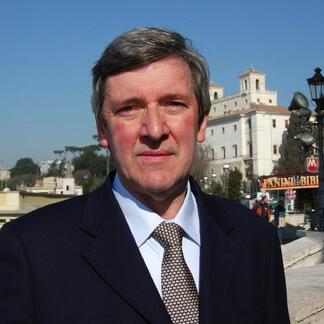Voices

Gerard O’Connell is America’s Vatican correspondent and author of The Election of Pope Francis: An Inside Story of the Conclave That Changed History. He has been covering the Vatican since 1985.
FaithVatican Dispatch
In another surprise decision, Pope Francis has decided to send Archbishop Charles Scicluna of Malta and Msgr. Jordi Bertomeu to Chile.
FaithVatican Dispatch
The pope appeared to be alluding to the fact that since February there has been a crackdown by the Chinese authorities on religion in the mainland.
FaithVatican Dispatch
The encounters will take place from June 1-3 at Santa Marta, the Vatican guesthouse where Francis lives.
Politics & SocietyVatican Dispatch
Philip Wilson was found guilty of failing to inform police about allegations of the sexual abuse of minors by a priest in the 1970s.
FaithVatican Dispatch
Pope Francis is trying to ensure that those who elect his successor are humble men committed to “a church of the poor and for the poor.”
FaithVatican Dispatch
Eleven of the new cardinals are under the age of 80 and so have the right to vote in the next conclave.
FaithVatican Dispatch
Both men were close to each other in life, and both are much revered by Pope Francis.
FaithVatican Dispatch
In the 10-page text, Francis presented a searing diagnosis of what had transformed this once prophetic and esteemed church in Latin America to one of the least respected.
FaithVatican Dispatch
The unprecedented decision was made on the final day of their meeting May 15-17 with Pope Francis.
FaithVatican Dispatch
“History is being made. We are at a particular moment for the universal church, not only for Chile,” one monsignor said.










